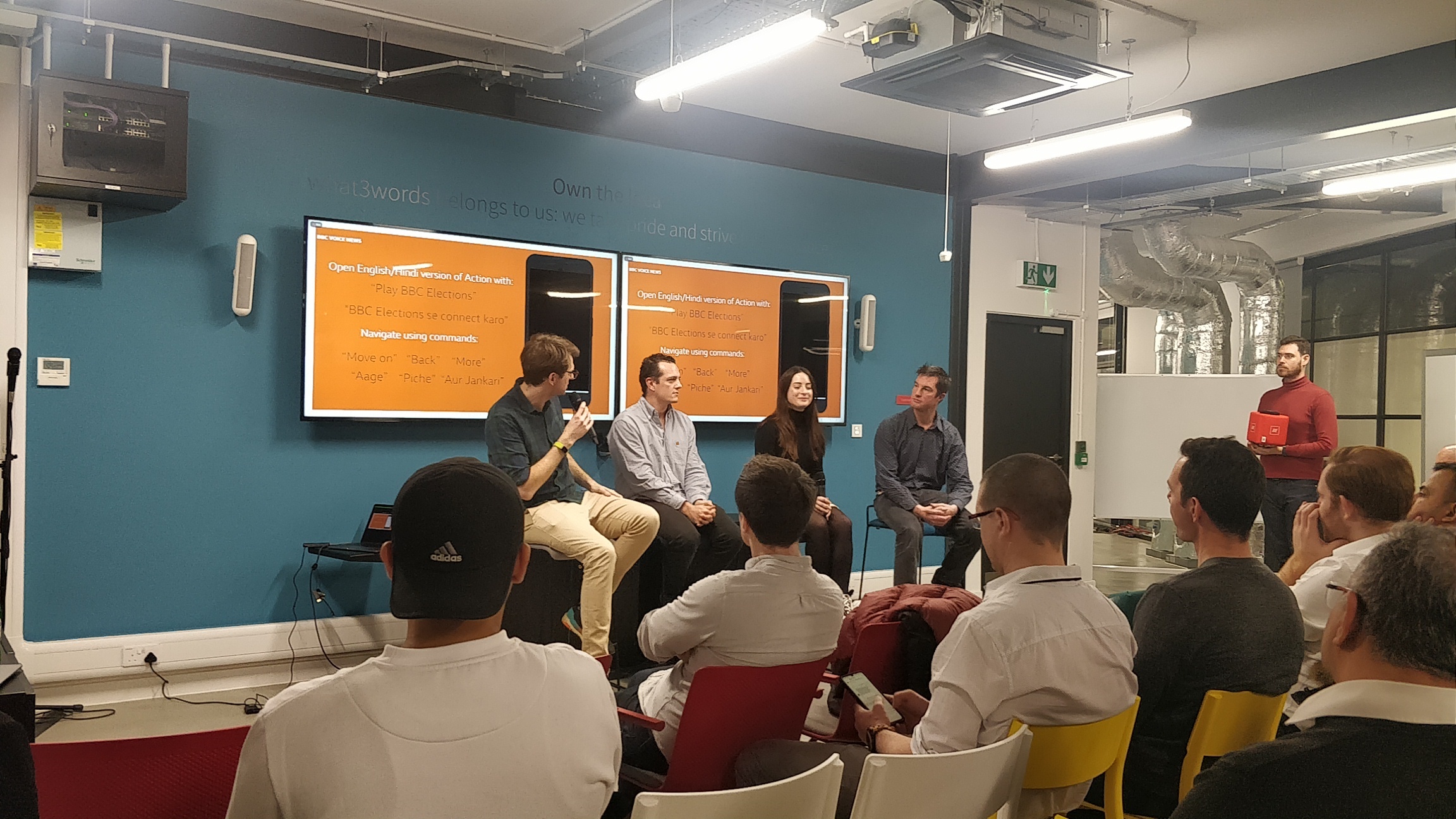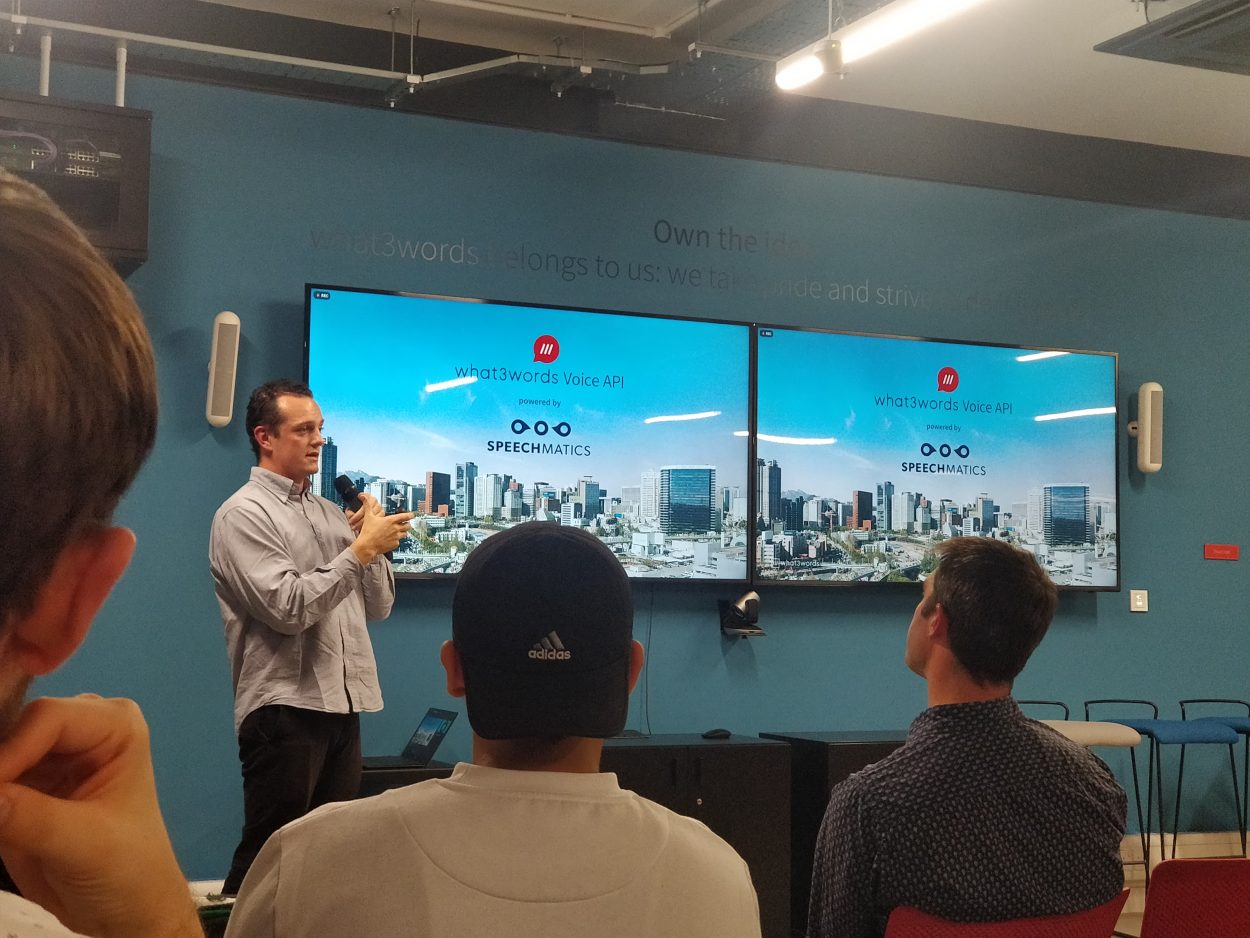///month.spit.others …. OK, a strange start to a blog post but ///month.spit.others is the what3words address for the Rabbit & Pork office – it takes you to the front door of our building.
The first meetup of the Chatbots & Voice Assistants group was hosted by what3words. If you don’t know what they do, the video below explains. They split the globe up into 3×3 meter squares and gave each one an address using.three.words.
Tom Blaksley, Head of Voice Partnerships at what3words
First up, Tom explained the use cases of what3words and voice. A simple example was a user asking for “Church Street in London”. It turns out there are 17+ Church Streets which is one of the reason why what3words works so well.
We already know that voice input in cars is a great use case when you can’t be looking or interacting with a voice device.
Tom went on to explain how, as the team developed the combination of words to be used for a language, they would need to conduct a number of checks, regardless of the language. First of all, checking if any words wouldn’t be appropriate to be used. For example “turtle” in Tamil would be unlucky as having a “turtle” in your house can be associated with tsunamis.

